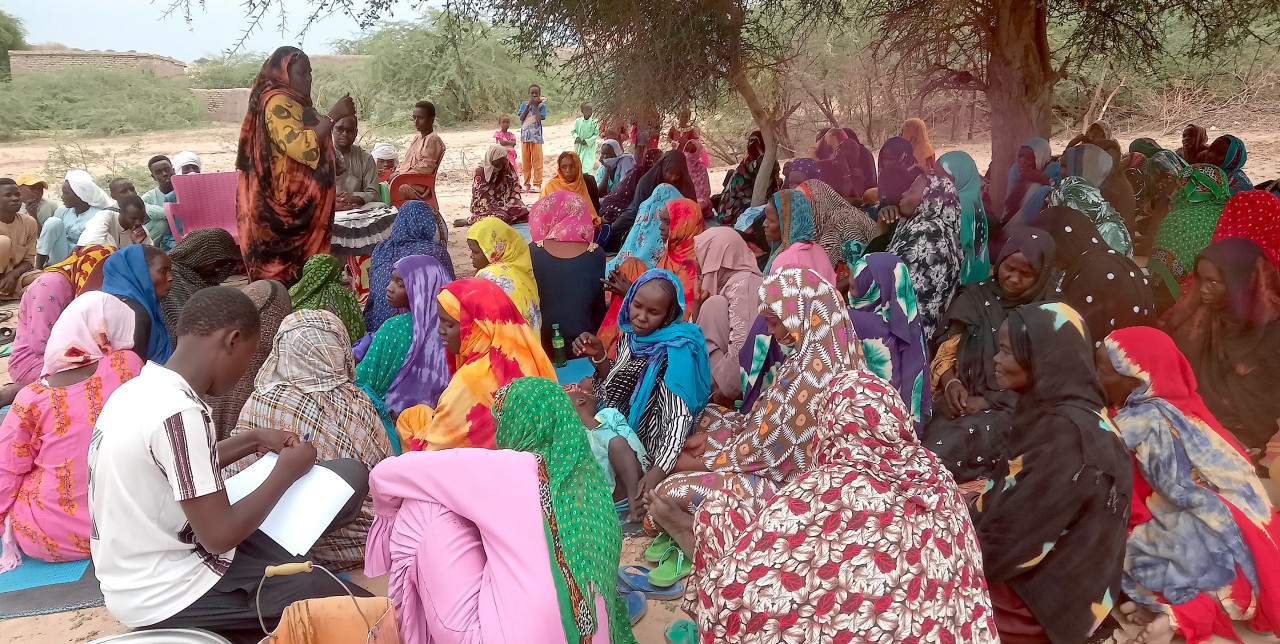18-03-2024 | di COOPI
Lake Chad: 16 days of activism for women's rights
To raise awareness of the consequences of gender-based violence on the physical and mental health of women and girls, COOPI, with its partners ACORD and CELIAF and with funding from the British government, organized four awareness-raising campaigns in Bol, Liwa, Bagassola, and Ngouri in the Lake region of Chad. Sixteen days of activism from November 25, on the International Day for the Elimination of Violence against Women, until December 10, International Human Rights Day.
The goal was not only to raise awareness, but also to demand concrete actions to end all forms of violence against women and promote gender equality. During the sixteen days of activism, lectures, debates, and calls were held to end sexual harassment, early marriage, female genital mutilation, and violence in all its forms. Among many initiatives, psychological counseling campaigns were conducted for members of women's civil society organizations. Idrissou K. Labande, project manager, highlights the immediate results of the mobilization:
At the end of these campaigns, 117 women, including 10 girls, confided that they had been victims of gender-based violence and are currently receiving psychological and medical assistance from the project."
COOPI-Cooperazione Internazionale, with financial support from the British government's Commonwealth Foreign and Development Office (CFDO), is working to contribute to peacebuilding and reduce instability and oppression of women in the Lake Chad region through the project "Gender and Peace: let's mobilize for an inclusive peacebuilding process."
The project aims to reduce the spread of violence in local communities by enhancing social and gender inclusion through awareness-raising and dialogue activities on the values of peace, peaceful coexistence and social cohesion. The initiative aims to strengthen the capacities of women's organizations so that they actively participate in dialogue on peace and economic conflict management; it also promotes socioeconomic activities directly targeting women and girls.
Indeed, the Lake Chad region today is one of the most troubled and fragile areas in the world, with one of the most acute and protracted humanitarian crises on the African continent. Disputes over access to land and other natural resources are the main causes of the violence recorded in the Sahel, often exploited by armed groups to legitimize their role and presence. For more than a decade, in fact, jihadist groups such as Boko Haram have operated in the area, whose violent attacks have caused worsening food insecurity and upset regional balances.
Armed conflicts, climate change impacts, permanent insecurity, and deteriorating socioeconomic livelihoods reinforce discriminatory practices and gender-based violence. Women and young women, in addition to being marginalized in their access to economic services, are excluded from control of land and natural resources, held in a cycle of vulnerability and violence.
COOPI has been working in Chad since 1976, intervening with a multi-sectoral approach. In the Lac and N'Djamena regions, it provides emergency education for internally displaced children and local communities, offers psychosocial support to victims of trauma, and promotes peacebuilding, with a particular focus on women's empowerment, gender-based violence and discrimination, and conflict prevention.




 Chad
Chad